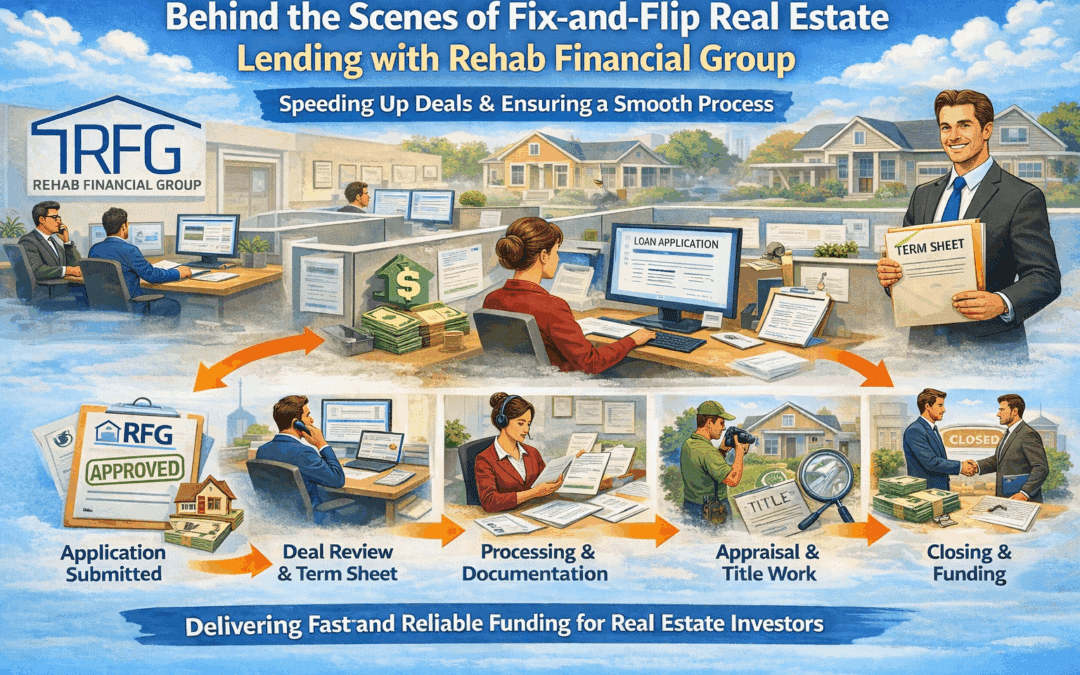How will you be remembered as a real estate investor? Or more specifically, what is going to set you apart from the crowd of real estate investors in the eyes of a distressed homeowner seeking a buyer for that property? It’s a measure of your success that allows you to rise above the rest to be the best investor in the eyes of the seller. So let’s look at 3 ways to stand out from the crowd.
When you can position yourself as the best choice for that seller, your legacy will write itself. You will be the real estate investor you would like to be in the eyes of sellers, peers and colleagues.
What brings this topic to mind and makes it relevant for me is seeing how extremely competitive the market is right now in Dallas, Texas, where I am a real estate investor and HomeVestors franchisee. Many real estate investors across the country are finding this same situation in their own markets. And that really forces you, as an investor, to strive to stand out among your competition. So, what can you do to differentiate yourself in the eyes of the seller? And how do you do that?
It’s very important that you present yourself as more than someone who merely pays the most. It would be great if we all had the capability to pull a price lever and be the investor who pays the most, therefore differentiating ourselves from competitors. But, like we all know, it is not realistic. And it’s not financially prudent, either.
In seeking to figure out how you are going to differentiate yourself, you should ask yourself, “How am I going to rise above the competition? What can I do to create a positive impression with sellers so I can grow my business?”
3 Ways to Stand Out from the Crowd
For me, there are three core areas I look at and that I challenge you to address:
- Demonstrating or proving I am a serious investor. I do what I say I’m going to do and I have the capability and the resources to do what I’m going to say I can do as a real estate investor.
- Secondly, I know I’ve got to position myself as a problem solver in the eyes of those sellers. I’ve got to understand what their objective is, what their need is or perhaps what their pain is. And I’ve got to demonstrate the ability to solve their problem or satisfy the need, eliminate the pain that the owner or seller of that distressed property is experiencing.
- Finally, you’ve got to be able to demonstrate as an investor, in the eyes of your seller, you are somebody who is capable and willing to serve the needs of those sellers. They have called you to their house because they have a specific need or an objective. And you’ve got to be willing to serve them above or beyond what that need or objective is. You’ve got to be able to demonstrate the willingness and the ability to serve.
So, let’s talk about these three in more depth.
Show You are Serious
How do you convince the seller you are a serious investor? At the time you meet with the seller of the distressed property, you’ve got to convey you are a serious investor through communication or actions. You must convince them you want to buy the house and you have the ability to buy as long as an agreement is reached with terms that are palatable for both parties.
You’ve got to convince them you are going to do what you say you’re going to do. Perhaps the terms may be to close on a specific date, or pay a specific price, or provide specific information needed in order to make a decision. There are a lot of ways you can demonstrate your seriousness as an investor when it comes to an individual seller.
Earnest money is one way to do this. Many investors may only offer $500. You could offer $1,500, $3,000 or $5,000—depending upon the house or your market. Put the earnest money amount in your contract. It’s a very powerful way of demonstrating how serious you are about buying their house. “I am willing to put down $5,000 of earnest money at the title company in order to demonstrate my ability and my commitment to closing on this purchase.”
You, as an investor, should definitely make your offer first—while you’re meeting with the seller—versus leaving and then calling them back that afternoon or the following day. Make your offer on the spot, so they know you are capable of determining what you can spend and you’re willing to commit to that number immediately. After all, that’s why they invited you to their house. Keep in mind, you have to gain their confidence and there are only two ways you can do this: with earnest money and on-the-spot offers.
Be a Problem Solver
Think about your ability as a problem solver as a real estate investor. A distressed seller called you to his or her house because that homeowner has a problem that needs to be solved. The ultimate manifestation of that problem is the need to sell that house.
When you, the investor, get to the house, no doubt you are excited, maybe anxious. You want to work out a deal, but keep in mind, you’ve got to step back and listen to what the sellers’ underlying problem is. If you don’t, you won’t understand how to solve it. So, take the time, make the effort and be conscious of the fact you’ve got to listen to the sellers. Let them educate you on the situation and let them talk about the house. These are all important things you need to listen to, in order to demonstrate you are the one who can solve their problem. And to demonstrate how you understand their problem and how you can provide a solution to their problem.
I’ll give you an example. A lease-back is a great way to demonstrate you understand their problem. Sellers have a house they have to sell. They’re in a conundrum because they don’t have any money to move to the next house or to place a down payment. Lease-backs are a great way to purchase a property, close the sale and get the money to the seller. And by allowing them to stay in the house on a temporary lease for 30 days, you give them the luxury of having extra money in their bank account without the burden of home-ownership. They now have the ability to find their next home, put down a deposit or a down payment. They may now be able to fund a move because of the fact you purchased the property, you paid them for the house and are allowing them to stay there for 30 days. Lease-backs are a great way to demonstrate your ability and willingness to be a problem solver as a real estate investor.
Be Willing to Serve
Then finally, let’s talk about your willingness to serve the needs of the seller. Remember, it is not always about the house. The house is a byproduct, it’s an outcome of your ability to meet with the seller, demonstrate you are serious and demonstrate your ability as a problem solver. Ultimately, you’re going to do all of that and at the end of the day, purchase the house. But you’ve got to have the willingness to serve, understand their need and serve to satisfy that need.
For example: We deal with a lot of remote sellers as real estate investors. You get the kids whose parents are deceased, and the children are now adults. They live in another state and are charged with selling the house. They may only be able to come to town once to show the house to you and negotiate the terms of the deal. Then they’re gone. Or perhaps you are dealing with a seller who is elderly and has moved into a care center but has to sell the house on the other side of town.
In both those scenarios, you could demonstrate your willingness to serve by paying for a mobile notary. Once you get the deal and the contract signed, the purchase is in process. When it comes time to close, then you send a mobile notary to wherever the seller is located. Mobile notaries are very cheap—$100 to $150, depending on where you live. It is a great way to serve the needs of a seller who cannot make it to a different location.
I can tell you from my own experience as a Dallas investor for over 10 years, I am not always the highest bidder. My offer isn’t always the highest offer on many homes I purchase. But the reason they choose me to buy the home is because of the other characteristics the sellers identify as important, such as feeling comfortable with me as an investor. And I’m sure this is the case for many of you, too—whether you are new investors, part-time investors, weekend investors or full-time investors.
Differentiate yourself from your competition. Ask yourself: How are you going to be remembered? How are you going to differentiate yourself among your competitors? Price is not the only way to do it. Be serious, demonstrate your ability to solve problems and demonstrate your ability to serve. These things will differentiate you from the pack, even when your bid is not the highest.
You can listen to Kevin’s complete podcast here:
http://www.blogtalkradio.com/kevinguz/2016/12/15/will-you-be-remembered-when-you-are-gone
About the Author
Kevin Guz is a Dallas, Texas-based residential real estate investor with more than 10 years of investing experience. He owns a HomeVestors (or “We Buy Ugly Houses”) franchise as well as the Clear Key companies, which focus on residential real estate wholesaling, rental property management and self-storage leasing. He also is a licensed real estate agent in the state of Texas. He enjoys sharing his ongoing personal experiences, perspectives and learnings from his start as a part-time or “weekend investor” and full-time corporate professional through his ultimate transition to a full-time real estate investor and business owner. You can listen to his podcasts at http://www.blogtalkradio.com/kevinguz.
























0 Comments